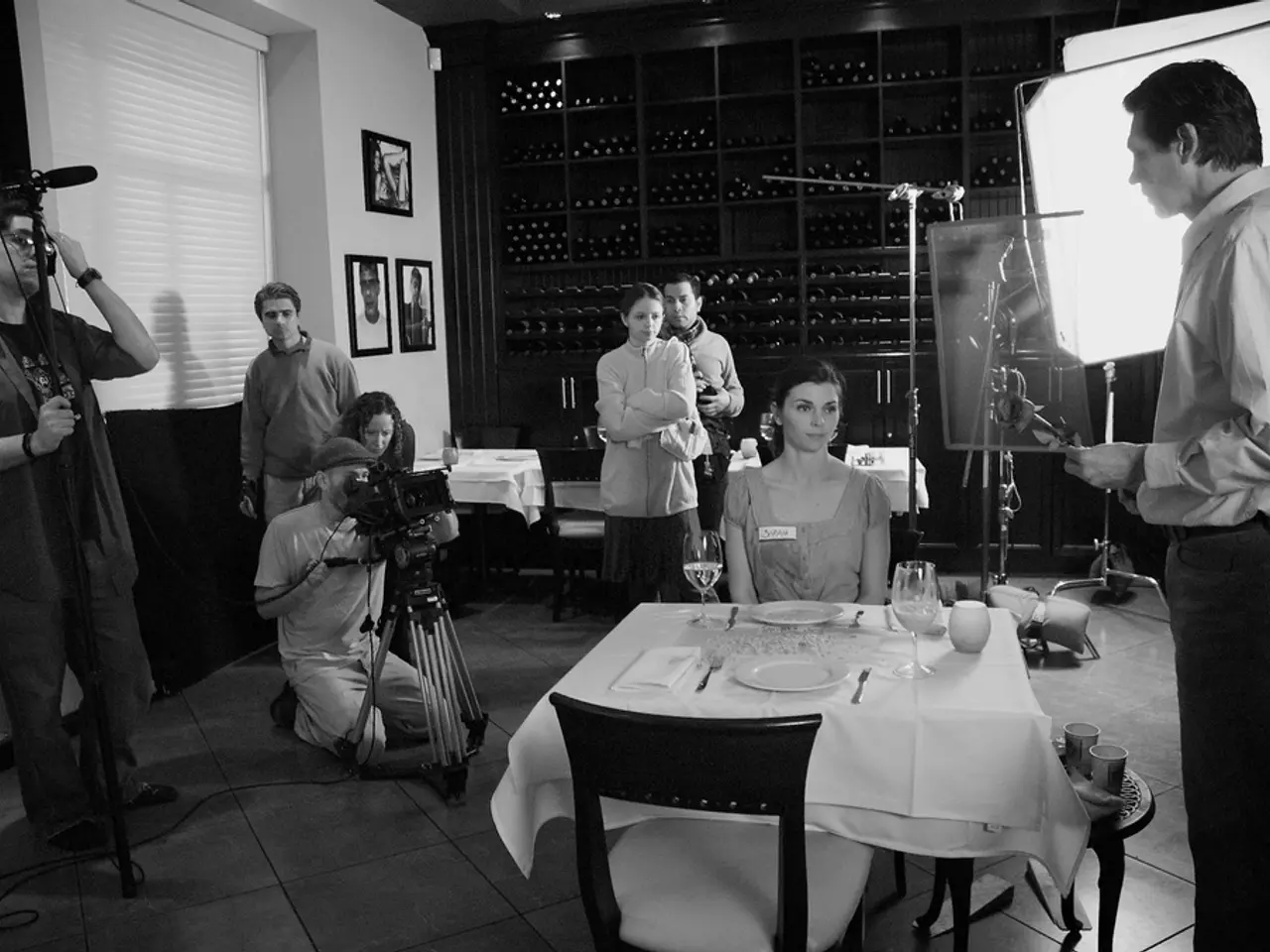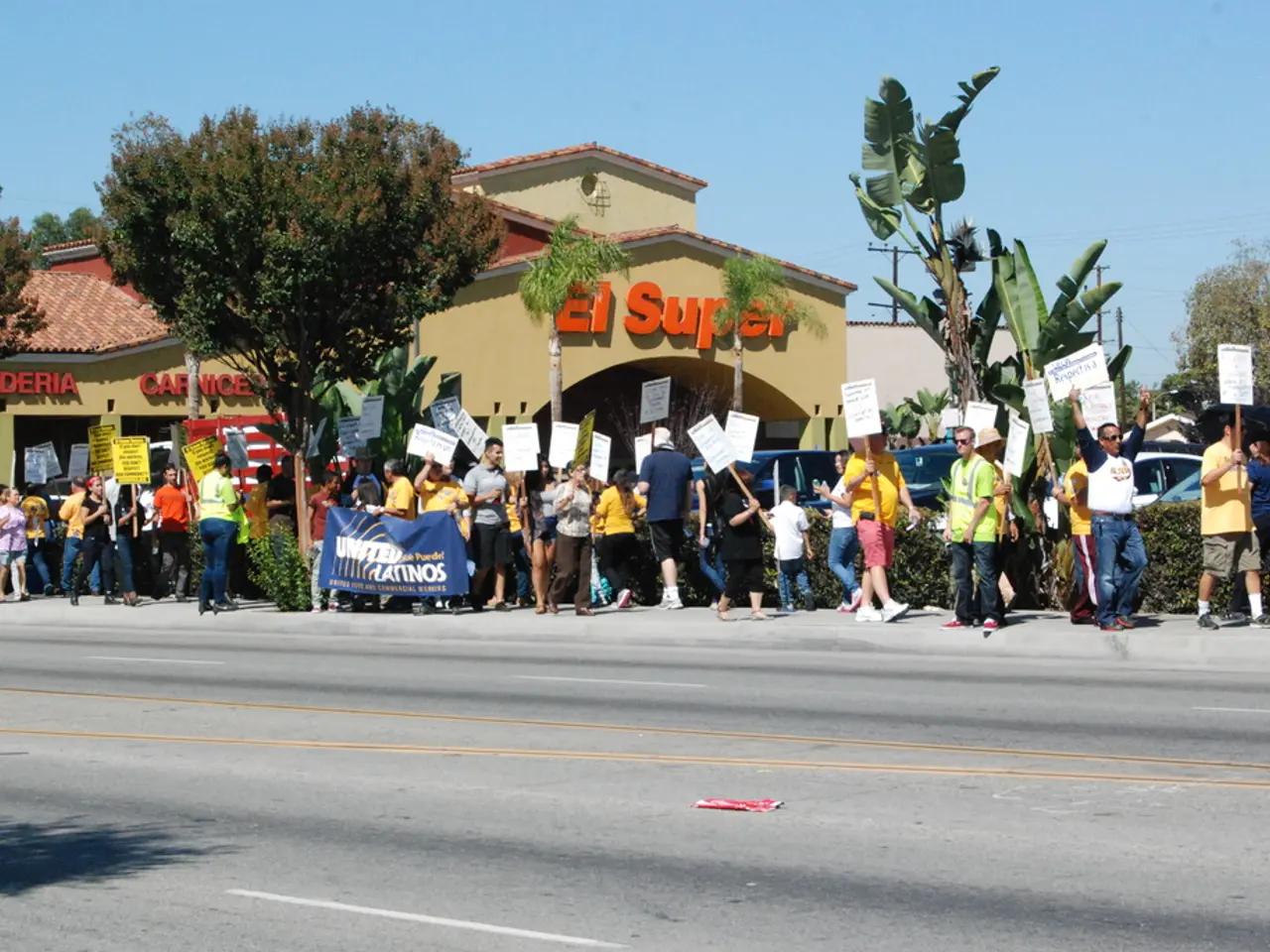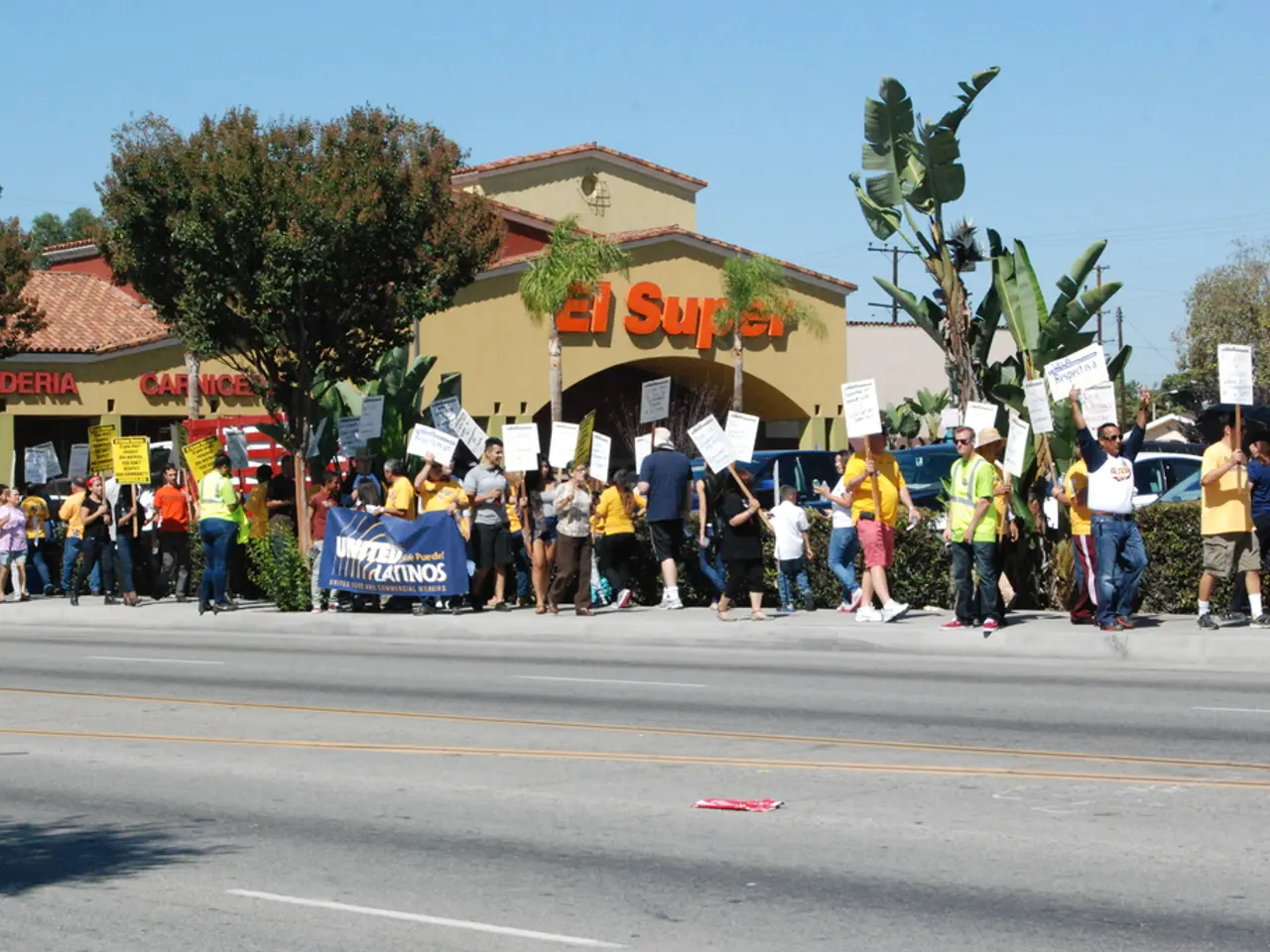Entertaintment Dispute Resolution: Grasping Legal Obstacles
In the dynamic world of entertainment, disputes are an inevitable part of the landscape. From intellectual property issues and contractual disagreements to employment conflicts, these disputes can significantly impact the industry's creative projects and professional relationships. However, a new era of conflict resolution is emerging, with Alternative Dispute Resolution (ADR) methods increasingly becoming the preferred choice over traditional courtroom litigation.
ADR, which includes mediation, arbitration, and negotiation, offers cost-effective, efficient, and flexible alternatives to litigation. These methods provide tailored ways to resolve complex commercial disputes, while preserving professional relationships that are crucial in the entertainment industry.
One of the key advantages of ADR is its cost and time efficiency. Mediation, for instance, enables parties to resolve disputes faster and at lower costs compared to traditional litigation, helping avoid lengthy court battles that can disrupt productions or business operations.
Moreover, ADR allows parties to collaboratively reach mutually acceptable solutions in a private setting, preserving relationships that are vital in the entertainment industry. This is particularly valuable, as ongoing professional relationships are essential for the smooth operation of creative projects.
Parties also have significant control over the ADR process, including selecting neutral third parties such as seasoned attorneys or retired judges to facilitate dispute resolution. This adaptability makes ADR methods suitable for the unique needs of entertainment disputes.
ADR offers both binding and non-binding outcomes. Arbitration provides binding decisions when parties require finality, while mediation and negotiation foster consensual resolutions, offering a range of options depending on the dispute’s nature and parties’ preferences.
Entertainment lawyers play a crucial role in navigating disputes, offering legal insight and drafting clear contracts to minimize future conflicts. They often advise on the most appropriate ADR method to balance legal, commercial, and reputational considerations, helping clients protect their interests effectively.
Emerging technologies like AI and online dispute resolution are beginning to enhance ADR processes, promising increased accessibility and efficiency for complex cases in the entertainment and commercial sectors.
In summary, ADR positively influences dispute resolution in the entertainment industry by reducing conflict costs and time, protecting relationships, and providing tailored, strategic, and technologically advanced methods tailored to industry-specific needs. This makes it a preferred mechanism over traditional courtroom litigation for many entertainment disputes.
From the litigation between Prince and his estate over music rights, to Taylor Swift's legal battle with her former record label, Big Machine Records, high-profile cases demonstrate the complexities surrounding intellectual property and contractual disputes in the entertainment industry. Pre-litigation strategies, such as negotiation, mediation, and maintaining thorough documentation, are proactive measures aimed at resolving disputes before they escalate to litigation.
Jurisdictional challenges in entertainment disputes arise when parties are located in different legal territories, complicating litigation and increasing costs. Thoroughly drafting contracts with clear jurisdiction and venue selection clauses can help pre-emptively agree on where disputes will be resolved.
Case law examples in entertainment disputes, such as "Gordon v. Harrison," "MGM Studios v. Grokster," and "O'Malley v. Troupe," offer valuable insights into how disputes are resolved and help set precedents for future cases.
The entertainment sector is susceptible to issues such as intellectual property rights infringements and contractual disagreements. Best practices for entertainment professionals involve drafting well-structured contracts, maintaining open lines of communication, incorporating alternative dispute resolution methods, and staying informed about legal developments within the industry.
Effective dispute resolution is essential to maintain professional relationships and ensure the smooth operation of creative projects. As the entertainment industry continues to evolve, so too will the methods and strategies used to resolve disputes, with ADR likely to play an increasingly significant role.
In the context of the entertainment industry, e-contracts can be valuable tools for addressing intellectual property and contractual disputes, as they allow for the clear and unequivocal allocation of rights and responsibilities between parties.
By incorporating ADR clauses in their e-contracts, entertainment professionals can facilitate the resolution of disputes through alternative methods such as mediation or arbitration, thereby preserving professional relationships and avoiding lengthy court battles. This proactive approach can help minimise potential disruptions to creative projects and maintain the integrity of the industry.







